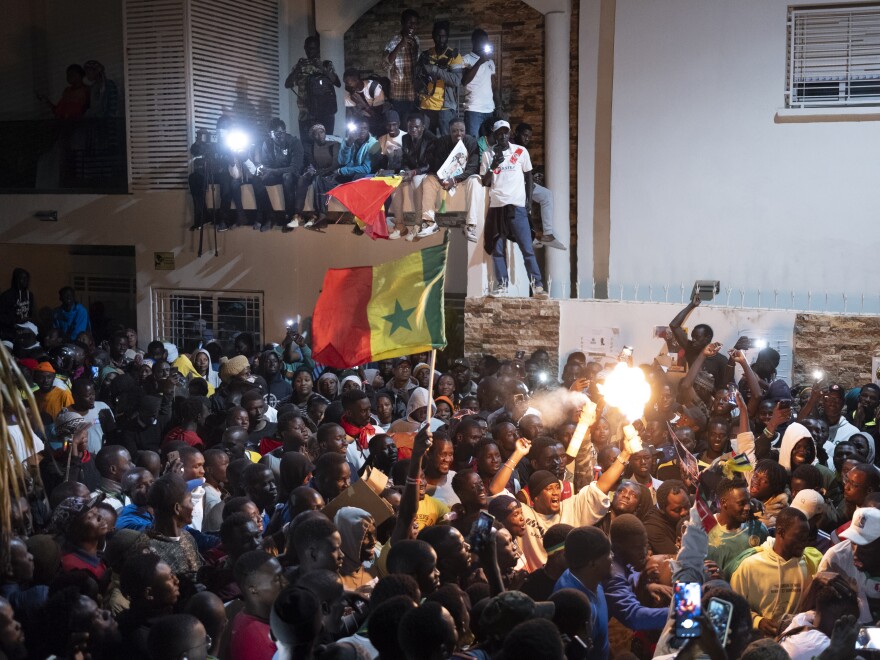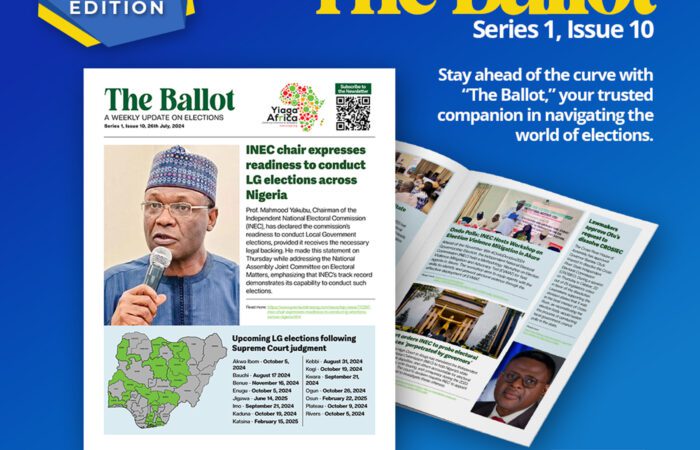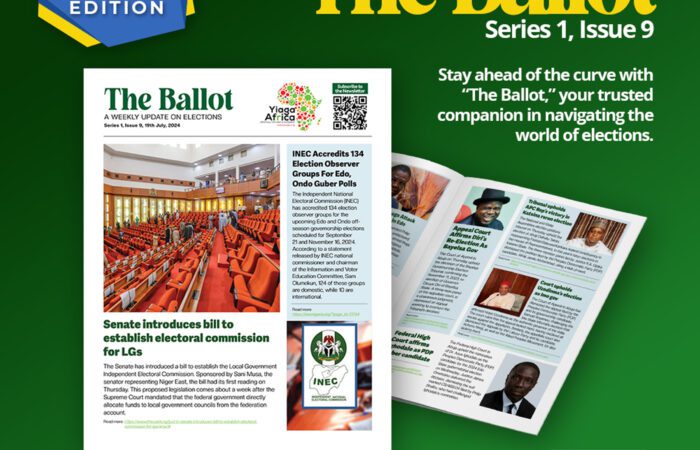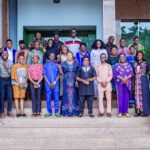By Ana’ayi Jennifer Danbagai
Recently, the world celebrated the emergence of President Faye Bassirou Diomaye, the youngest Senegalese President since its independence, on his victory. His victory demonstrates the possibility of a shift in the emergence of younger leadership in Africa, which is a deviation from the age norm of presidents across the continent. The outcome of Senegal’s election was only possible as a result of the active participation of its citizenry and institutions in democratic processes, especially its young people.
Following the postponement of the election by former President Macky Sall, on February 3, 2024, just three weeks before the presidential polls, Senegalese youths took to the streets, voicing their strong disapproval of Sall’s decision. Despite government intimidation and violence, these youths held their ground until the Constitutional Court’s ruling which ruled that the presidential election must be held before the end of Sall’s official term in office.
Senegal’s democracy thrives on its ability to self-correct, driven by the active participation of its citizens, particularly the youths in holding their elected leaders and institutions accountable. Since 1960, Senegal’s leaders, from Léopold Sédar Senghor to Macky Sall have attempted to remain in power through arbitrary means, suppressing political opposition, restricting freedom of expression, and manipulating the integrity of electoral processes.
Senghor’s regime in Senegal restricted political participation and opposition with his Senegalese Progressive Union (UPS) dominating elections until 1976. This suppression of opposition was challenged by youth movements, forcing the opening of elections. Senghor’s successor, Abdou Diouf who had a history of being at odds with the youths, attempted to extend his presidency beyond the legal term. His tenure was marked by a series of youth-led movements for political and economic reforms. Similarly, Abdoulaye Wade, elected in 2000 with youth support, sought an unconstitutional third term in 2012. The youths reacted through protests, successfully preventing Wade’s third term and paving the way for Macky Sall’s victory in the same year. Every attempt made by the Senegalese presidents that goes against democratic norms was halted by youth-led movements. Notably, the youth-led movements in all the times the young generation fought for their democracy were met with resistance. The 2024 protests demanding an election were not different also with the arrests of some protesters and violent dispersal of protesters.
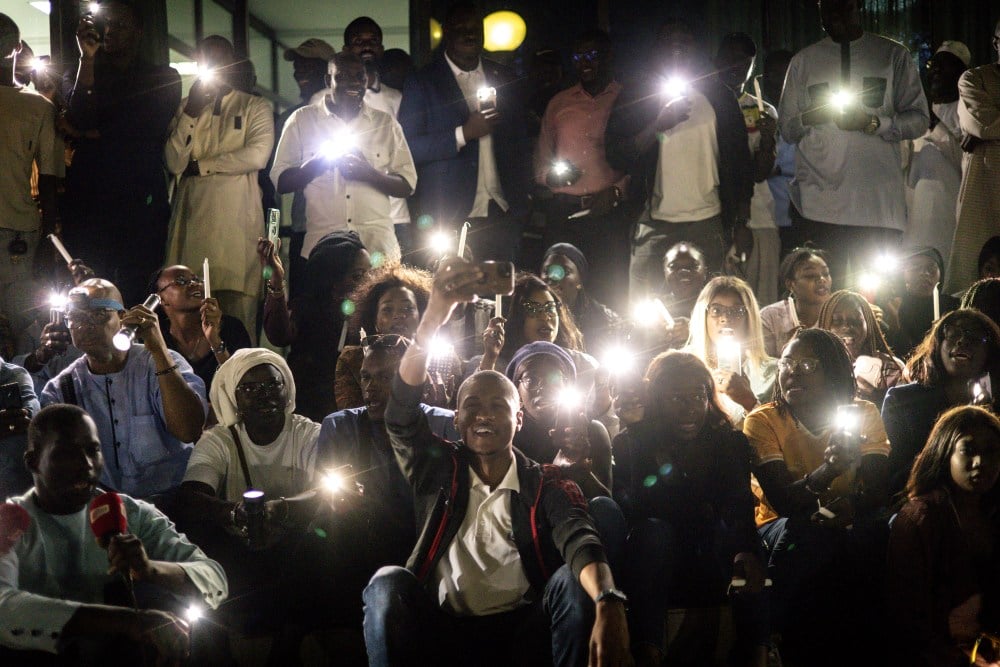
While we applaud the efforts of Senegalese youth in strengthening the democratic process of Senegal, we as Nigerian Youths must reflect on our roles in creating an enabling environment for accountability and transparency in our political society through our active participation. Can we truly affirm that we have a youth generation willing to demand change?
Nigeria’s National Youth Policy (NYP) 2019 identifies Youth as citizens aged 18-29 years old, falling perfectly in the current Gen Z generation. With a median age of 17.9 years, over 60% of Nigeria’s population falls within this youth bracket. This shows a significant demographic of young people with the potential to shape politics and influence governance.
The failures of successive civilian governments in Nigeria to deliver on the dividends of democracy since 1999 have demonstrably fueled widespread political apathy, particularly among its youth. While recent years have witnessed a rise in youth activism and mobilization for political inclusion, Nigerian youths still lack the level of organization and resilience needed to effectively hold their elected leaders accountable. #EndSars was one of the largest youth-led movements ever witnessed in Nigeria, which started as a call against police brutality and evolved into a protest against the systemic failures of former President Buhari’s administration. However, the protest was met with a lot of violence and government intimidation. In the aftermath, many Nigerian youths felt defeated. While this feeling of defeat contributed to a surge in the “Japa” movement – a desperate desire to leave the country, it also created a lull in the youth momentum needed for political change With this event, many young Nigerians who participated in the protest e became even more disengaged from governance, focusing more on finding a way out and escaping the austere reality of Nigeria. They are driven by a constant state of “anywhere but Nigeria.”
Nigerians are often described as resilient and joyful people, known for their ability to “make lemonade out of lemons” or like we say “pepper-soup out of pepper”. However, does this optimism mask a deeper issue? Are we truly happy, or do we simply forget our problems too quickly? These questions become particularly pertinent when considering youth engagement in politics and governance. The lines between resilience and apathy have become increasingly blurred. While resilience is admirable, it becomes problematic when it translates into a lack of action towards addressing systemic issues. The 2023 elections were conducted barely 2 years after the EndSARs protest. While there was an inspiring youth enthusiasm ahead of the election especially with the engagement on social media, the elections still witnessed a voter turnout of 27.05% for the Presidential and National Assembly elections and 29% turnout for the Governorship and State Assembly elections. Compare that with the 61.3 % voter turnout in the Senegal 2024 election.
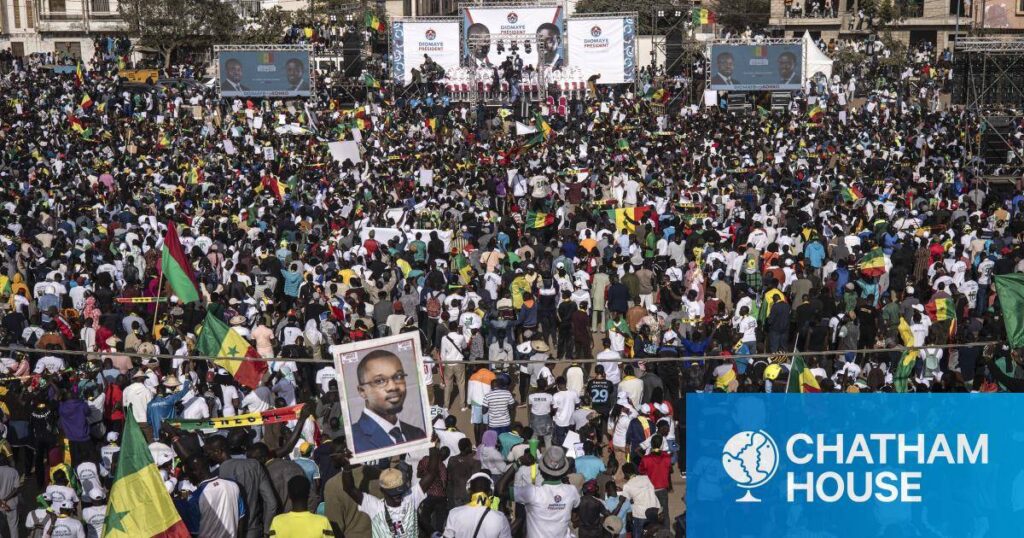

Despite an increase in registered voters for the 2023 general elections, Nigeria still witnessed a low voter turnout. The youth voters (18-34 years) made up approximately 40% of the registered voters: imagine if 80% of the youth voters turned out to vote, the youth number would have changed the outcome of the elections at all levels. The 2023 election and successive elections in Nigeria has revealed that youth enthusiasm before elections do not necessarily translate to youth voting. This reflects the incredibly low level of youth civic engagement in democratic processes like voting, engagement with elected officials, and policy advocacy.
While social media has played a valuable role in increasing youth engagement in government and participation in democratic processes, there is still a wide knowledge gap in the democratic structures, accountability systems, and civic responsibilities among the youth, particularly the Gen Z group. Without addressing this gap, meaningful youth-driven change in governance remains elusive. Beyond social media engagement, a critical question remains: how many Nigerian youths are actively involved in party politics? How can we influence individuals who become flag bearers of these parties, potentially representing our interests, if we don’t actively participate in the political process? To truly strengthen the role of Nigeria’s youth in democracy and governance, we must move beyond social media and actively participate as party members. We must learn to balance our social media activism with offline direct engagement with the political system. This is the foundation of democratic accountability and political participation.
Another critical issue we must emphasize is the hyperfocus on presidential elections. This has led to us neglecting engagement with government at the state and local levels, with leaders at these levels failing to represent the interests of their constituents. While government leaders lead policy and decision-making, citizens hold significant influence in shaping policy direction. History shows that major policy changes often originate from citizen-led movements. We must learn from the resilience of past generations like the nationalists who fought for independence. Amidst government resistance, movements like #EndSars demonstrated the youth power of collective action in driving change and holding systems accountable.
Nigerian youths must move beyond divisive rhetoric across ethnic and religious lines and acknowledge the systemic and societal issues contributing to the breakdown in governance. We must address these issues through persistent engagement and demand for accountability from our leaders. Significant challenges still hinder youth inclusion and participation in mainstream politics. These include limited resources, high costs associated with expressing interest and nomination forms, and high costs of running campaigns. Despite these challenges, our efforts in changing the narratives must be sustained.
The fight for good governance is a continuous one. We cannot afford to become complacent or allow our silence to embolden corrupt leadership, allowing them to shirk their responsibilities without consequence.
As Elie Wiesel said, “neutrality helps the oppressor, never the victim”.
Ana’ayi Jennifer Danbagai works in the Africa Division of Yiaga Africa. This article was originally written for The Cable and can be accessed here

